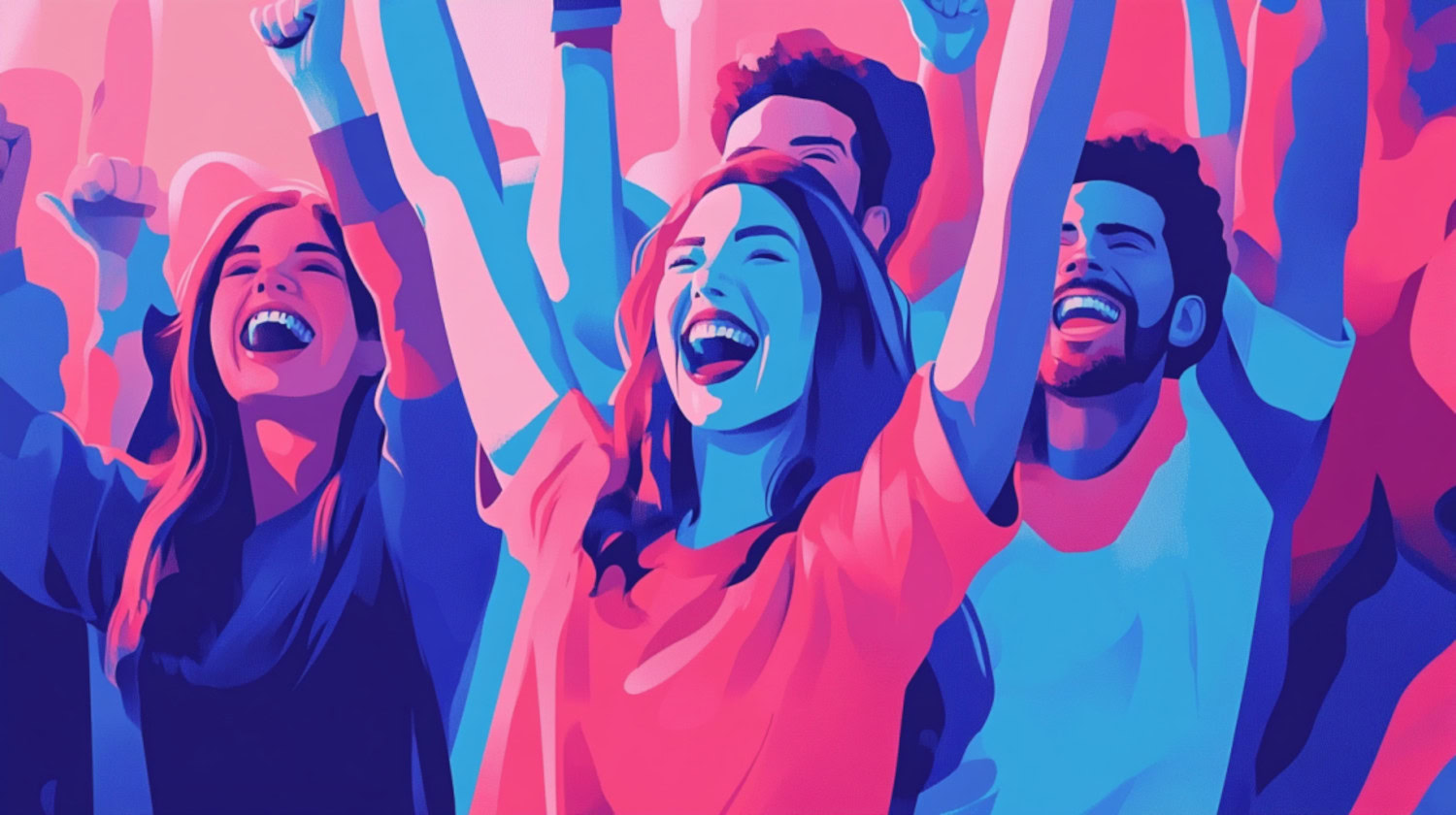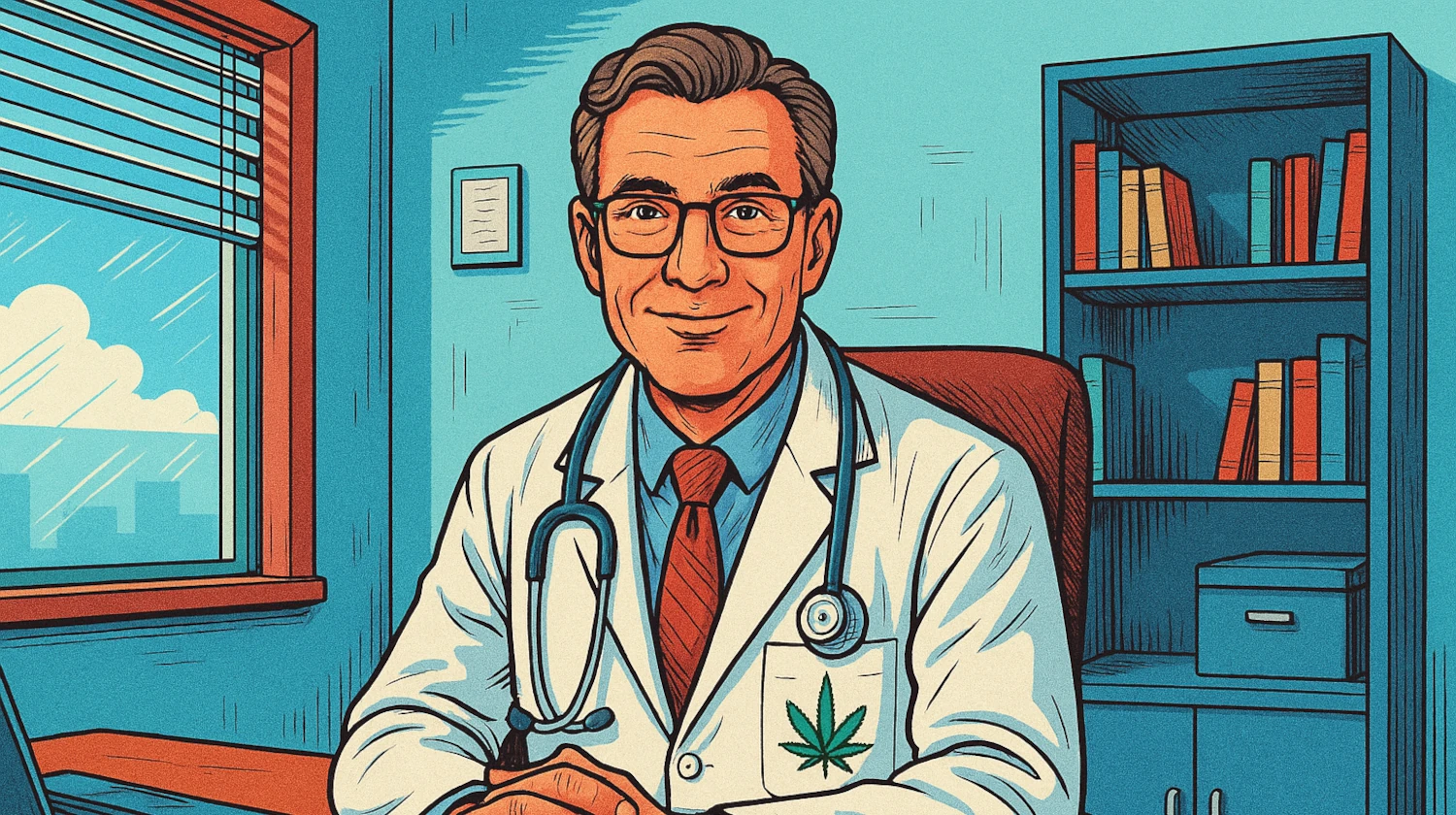In This Article
- Recent Research About Cannabis and Mental Health
- Mental Health Resources for Cannabis Users in the U.S.
- 988 Suicide & Crisis Lifeline
- SAMHSA National Helpline
- Crisis Text Line
- NAMI HelpLine (National Alliance on Mental Illness)
- Dial 211 (United Way Helpline)
- Short-Term Counseling and Support (Outside Traditional Insurance)
As cannabis use becomes more accepted in the US, there’s an increasing focus on potential implications for mental health. There’s also a common misconception that cannabis use is completely harmless. This isn’t the case. Like any substance, even sugar, excess use can lead to serious consequences for some consumers. For instance, cannabis use can affect brain chemistry and may increase mental health problems in susceptible patients.
If you have a mental health condition, you should speak to a physician before using cannabis. Close monitoring and honest communication can be life-saving for those with severe mental health disorders, and in some cases, cannabis use should be avoided altogether.
Many patients feel that mental health help is too expensive or unavailable, but there are resources that can help patients in times of need, some for free! We’ll list these resources in this article.
Recent Research About Cannabis and Mental Health
Emerging research paints a complex picture of cannabis use and mental health. Some studies suggest potential benefits, often for conditions like stress, anxiety, and PTSD. Others highlight serious risks, including increased risk of suicidal ideation and exacerbation of schizophrenia or bipolar disorder.
Each person’s reaction to cannabis is unique. For some, it helps significantly and little oversight is needed. Others might suffer severe issues and require mental health care. It's one reason why patients should discuss medical cannabis with a qualified doctor before adding it to their daily regimen. It's also an argument for how states can better support patients by maintaining robust medical cannabis programs that destigmatize its use and give consumers a clearer path to appropriate medical support when they have questions or experience undesirable side effects.
Listen to your friends and family. If they notice personality changes, depression, agitation, anxiety, or any other mood problem, seek help immediately and/or make an appointment with your doctor as appropriate. It’s not worth the risk to try to tough it out alone.
Mental Health Resources for Cannabis Users in the U.S.
If you or someone you care about is a cannabis user struggling with mental health, you are not alone. Help is available. There are many resources across the U.S. designed to support mental health. Most are open to everyone, whether you use cannabis or not.
988 Suicide & Crisis Lifeline
How it can help: 24/7 immediate crisis support by phone or text. By calling or texting 988, you’ll be connected with a trained counselor who can help with suicidal thoughts, emotional distress, or any mental health crisis. Veterans can press "1" after calling to reach the Veterans Crisis Line.
Contact: Call or text 988 (free, 24/7)
Website: https://988lifeline.org
SAMHSA National Helpline
How it can help: Treatment referrals and mental health or substance use information. A free, confidential service available 24/7/365 that connects you to local treatment facilities, support groups, and community resources—including for cannabis-related issues.
Contact: Call 1-800-662-HELP (4357) (available 24/7)
Website: https://samhsa.gov
Crisis Text Line
How it can help: Free text-based crisis counseling. If you prefer texting, you can message 24/7 with a trained volunteer crisis counselor about anxiety, panic, depression, substance urges, or anything else.
Contact: Text HOME to 741741 (available 24/7)
Website: https://www.crisistextline.org
NAMI HelpLine (National Alliance on Mental Illness)
How it can help: Mental health education, support, and referrals. Not for emergencies, but helpful for finding therapists, support groups, or general guidance. Available Monday–Friday, 10am–10pm ET.
Contact: 1-800-950-NAMI (6264) or Text "NAMI" to 62640
Website: https://nami.org/help
Dial 211 (United Way Helpline)
How it can help: Local resource finder. Calling 211 connects you with local services such as free or low-cost mental health clinics, financial assistance, or peer support networks. Availability may vary by region.
Contact: Call 211
Website: https://211.org
Short-Term Counseling and Support (Outside Traditional Insurance)
Sometimes you might need help that isn’t long-term therapy or isn’t covered by insurance, but you need more than a quick call or referral. Fortunately, there are programs that offer short-term counseling or support at low or no cost:
- Employee Assistance Programs (EAPs): If you’re employed, check whether your workplace has an EAP. These are confidential programs, paid by your employer, that usually provide a limited number of free counseling sessions for employees dealing with personal, mental health, or work issues.
- Give an Hour (nonprofit): Give an Hour is a national nonprofit organization that connects people in need with licensed therapists who volunteer an hour of their time per week to provide free counseling. It offers no-cost short-term therapy (usually 6-12 sessions) through a network of volunteer mental health professionals.
- Sliding-Scale Clinics: If you don’t have insurance or your insurance doesn’t cover mental health well, look for sliding-scale services. Open Path Psychotherapy Collective, for example, is a nonprofit network of therapists who offer affordable sessions (typically $40–$70 per session) for people with financial need.
- Low Cost Clinics: Community mental health centers and local clinics often offer discounted or even free therapy based on income. You can find these by calling 211 or searching online for “[your city] community mental health.”
- Your School: College or university counseling centers sometimes offer low-cost services to the public if they have training clinics. Don’t be afraid to ask about fees – many providers will work with you.
If you recognize that your cannabis use may be affecting your mental health, don’t panic – but do seek help right away. It might be time to re-evaluate your cannabis use with the help of a professional. You might consider reducing your intake, taking a tolerance break, or seeking treatment for cannabis use disorder if it’s severe.
More importantly, address the underlying feelings too. If you’ve been using cannabis to mask depression or trauma, those issues deserve attention in their own right. A therapist can help you find alternative coping strategies that don’t have the downsides you’re experiencing.
Learn about how cannabis may work (or not work) for a medical condition, and sign up for NuggMD's Weekly Sesh newsletter for consumer stories, tips, and analyses on how changing regulations and resources may impact patients.
The information in this article and any included images or charts are for educational purposes only. This information is neither a substitute for, nor does it replace, professional legal advice or medical advice, diagnosis, or treatment. If you have any concerns or questions about laws, regulations, or your health, you should always consult with an attorney, physician or other licensed professional.




